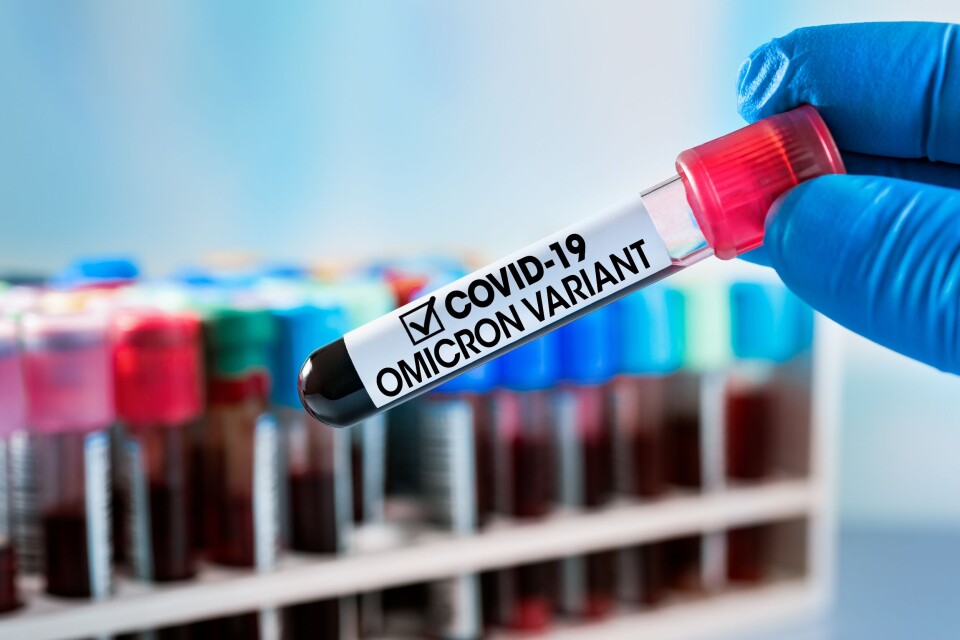-
When my husband dies will I lose access to healthcare in France through his S1?
Settled residents in France can access healthcare through 'Puma' system
-
American celebrity jeweller robbed of ‘more than €1m’ at French Riviera Airbnb
Jewellery and cash stolen from rental property where Chris Aire was staying
-
New 2026 civic tests in France: 50 example questions in French
Candidates must score 80% on tests to pass
First Omicron case confirmed in mainland France – in Paris region
There are around 12 other ‘suspected’ cases still being tested. Experts are concerned that the lengthy sequencing process will make it difficult to curb the variant’s spread

[Article updated December 2 at 15:15]
The first Omicron case in mainland France has been confirmed today (December 2) in Ile-de-France.
The region’s Agence régionale de santé health authority has announced this morning that “A traveller living in Seine-et-Marne tested positive for Covid as he disembarked from a plane on November 25, returning from a trip to Nigeria.
“Sequencing of his test result revealed on Wednesday that this person was carrying the Omicron variant. He is a man aged between 50 and 60 years of age who was not presenting symptoms at the time of the test,” and who is not vaccinated.
The man’s family, who are also unvaccinated, are being tested and are required to isolate.
Around 12 other “suspected” Omicron cases have also been detected in mainland France, but sequencing is still underway to determine whether they are linked to the new variant.
Only one other case has been confirmed in French territory, on Réunion island.
It was on Sunday, November 28 that eight “possible cases” were reported in France, with five more being detected on Tuesday.
Government spokesperson Gabriel Attal said after the Conseil des ministres meeting on the Covid situation yesterday (December 1) that the public should “not panic,” but regard the new variant with “the utmost vigilance.”
Mr Attal announced that in order to prevent the spread of Omicron the government would be extending tougher travel restrictions to more countries in southern Africa, but added: “Let’s not be fooled nor naive, there will most likely be cases [confirmed] in our territory in the coming hours or the coming days.”
Since the emergence of Omicron was signalled by South Africa on November 24, cases have already been detected in several European countries, including Belgium and the UK.
Epidemiological experts will need several weeks to determine how dangerous and/or vaccine-resistant the new variant is, but until then the best way to control its spread is to sequence positive PCR test results to detect cases.
This will allow national authorities to isolate infected people and stem the spread of the variant.
However, France is sequencing positive test results at a much slower rate than other European countries.
Currently, the French testing system first works to determine if a positive case suggests a mutation associated with a certain Covid variant. A second step then sees sequencing carried out to determine the identity of that variant.
“France has always done badly when it comes to testing new variants,” Philippe Froguel, professor at Lille’s Centre Hospitalier Universitaire and Imperial College London, told BFMTV.
“In the majority of other countries, human genetics centres and hospitals work together. In France we have never managed to get that cooperation.”
Prof Froguel added that this was the “Achilles heel” in the country’s “test-trace-isolate” system.
France is currently only sequencing 1.6% of its positive cases, while the UK is covering 16% and Denmark 35%.
Monitoring new variants is a key step in bringing the pandemic to an end.
— Edouard Mathieu (@redouad) November 30, 2021
But we can only do that if enough cases are sequenced and reported quickly. And the sequencing effort varies enormously across countries.
We now show this in our Data Explorer: https://t.co/VwbXm52uFs pic.twitter.com/o7Aac5UtY5
However, Vincent Enouf, the Institut Pasteur’s deputy director of respiratory infections, has said that health authorities are sequencing 8,000-10,000 cases per week, which is apparently “enough to determine the presence of new variants or to monitor a variant which we are already aware of.”
François Blanchecotte, president of the Syndicat des biologistes, has also said that a minimum of 7,500 weekly tests are needed to form an idea of how the virus is evolving in the country.
According to Prof Froguel, however, this figure is “really insufficient, it’s the number that should be carried out each day in order to really track” the situation.
Prof Froguel has also said that lengthy administrative processes and delays in producing results are making France’s sequencing work less effective, and has called for the government to invest more in the system.
Related stories
BREAKING: Negative Covid test for vaccinated non-EU arrivals to France
Covid France: 47,000 new cases, what is expected in next few weeks?
























